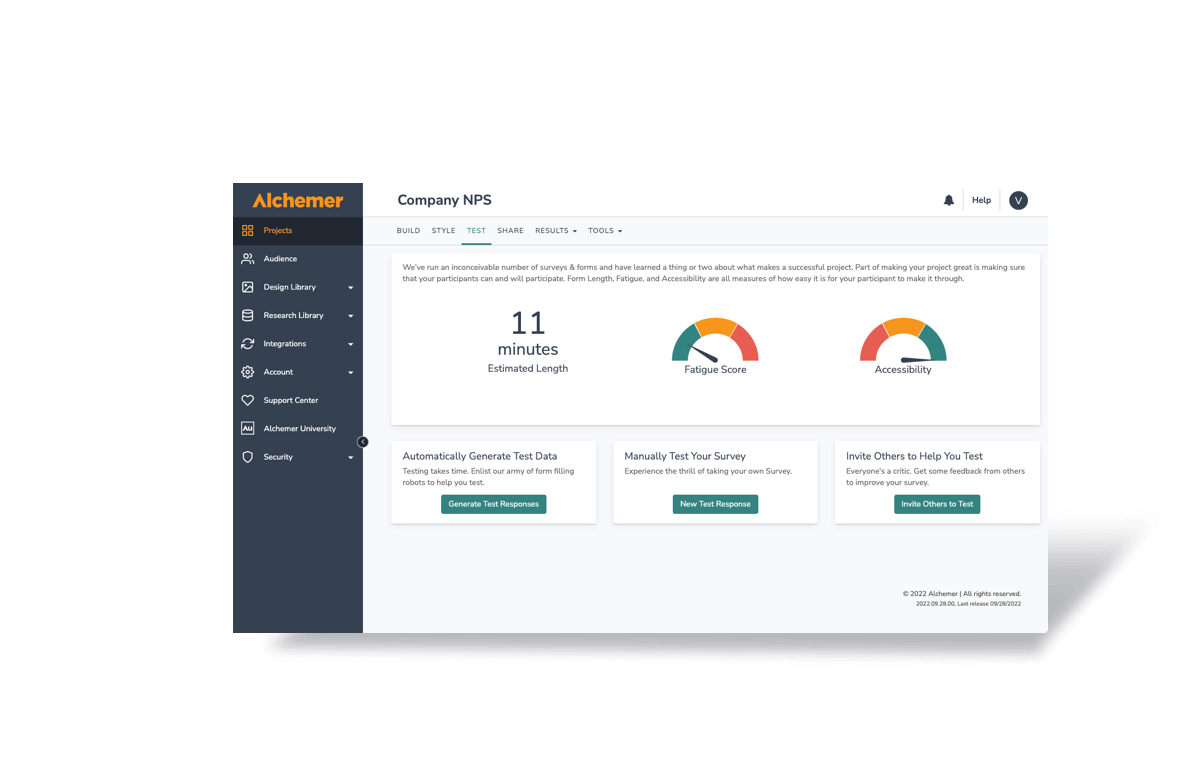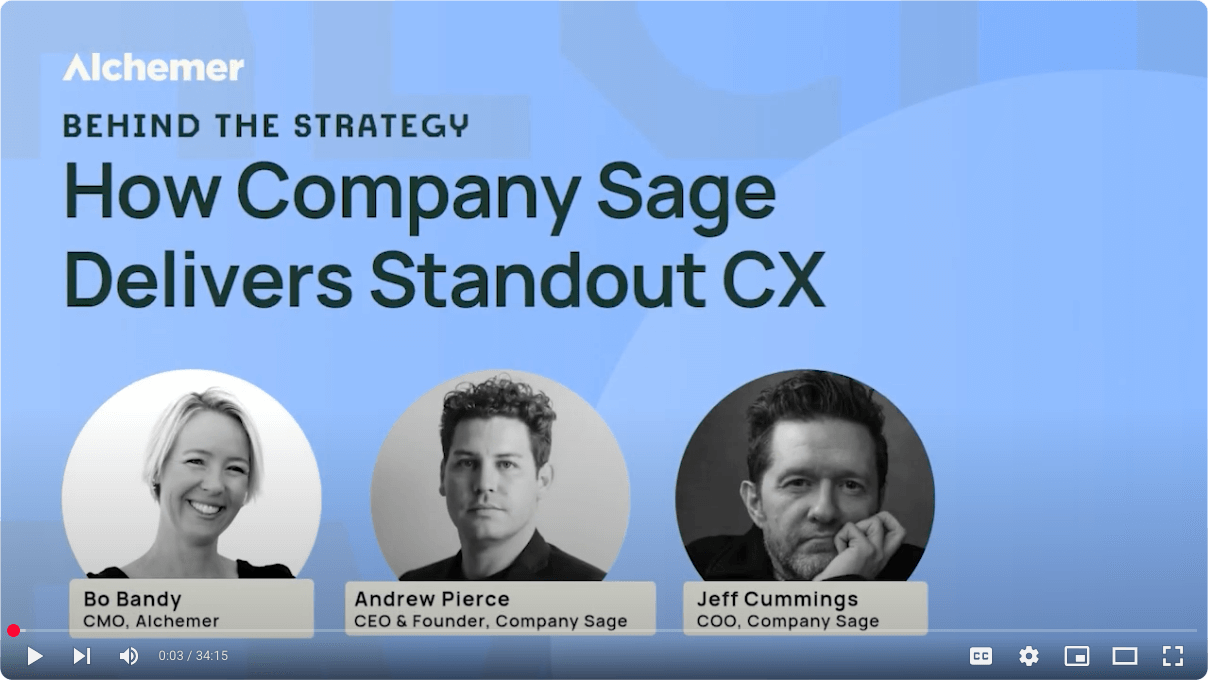By Tim Svensen, Software Engineering Manager, and Chris Cantrell, Senior UX Designer
Our customers continually inspire us. They leverage the Alchemer platform in ways we never imagined, using feedback to drive real impact throughout their organizations.
Take Mary Ann Mendez. An accomplished researcher at the Professional Development and Research Institute on Blindness (PDRIB), she’s a real force of nature. We met up with her at a recent Ultimate Training Event in Boulder, where everyone was impressed with her professional savvy, and where her enthusiasm spread through the room like wildfire. Even more impressive was how her journey as a visually impaired researcher to find a more accessible platform led her to Alchemer – and how PDRIB now uses Alchemer to power their ground-breaking research on blindness.
About PDRIB
Making the world accessible to people with visual impairments is at the core of everything the Professional Development and Research Institute on Blindness does. They are at the forefront of professional training and research that empowers blind and visually impaired individuals to lead more independent lives. PDRIB is guided by the belief that given the proper training and opportunity, blind people can live full and normal lives – competing in virtually all areas of employment and community life. This guides their research, which centers on finding ways of addressing barriers to full integration.
The Need for Better Accessibility
One such barrier for conducting PDRIB research was the lack of accessibility in their feedback platform. In the past, accessibility issues made survey design and collection difficult for Mary Ann and her respondents, who are visually impaired.
Integration with Mary Ann’s screen reader – the technology that reads the contents of any given webpage or email out loud – was limited at best. She was often left to guess the contents of her screen, and this put limits on the types of surveys she could design.
Feedback collection was limited too. Visually impaired respondents had difficulty accessing and completing surveys on their computers, phones, or Braille displays. It was hard to decipher which questions went with which answers, leading to data quality issues as well as respondent frustration. Many times, Mary Ann was forced to collect responses by phone.
When she called the survey software provider to address these accessibility issues, she was told, “Why don’t you get a sighted person to build the survey for you?”
“Finding Alchemer was such a delight.”
All of this changed when PDRIB migrated to Alchemer. “Finding Alchemer was such a delight,” Mary Ann said. It provides robust functionality to design advanced surveys, as well as the built-in accessibility not seen anywhere else. As a result, both visually impaired researchers and respondents can interact with the platform quickly and easily. “I know what’s happening at all times. Alchemer has taken the guesswork out of deciphering the information on my screen.”
Fast Implementation and Ease of Use
Learning a new platform can be difficult, especially when you are dealing with accessibility issues. Because previous the platforms she had used came with steep learning curves, Mary Ann expected the same from Alchemer. She was surprised at how easy it was to work within the platform. “I had my survey up and running within a few days,” Mary Ann reports. “Everything worked so well. There isn’t anything I haven’t been able to accomplish!”
Higher Quality Data and Increased Reach
With Alchemer, Mary Ann has been able to design advanced surveys, and that has enabled PDRIB to collect higher quality data. And because respondents can now access surveys on their smartphones or Braille displays, as well as their laptops, PDRIB can reach out to more respondents on multiple devices.
Alchemer streamlines data analysis, as well. “Because Alchemer offers flexible and well-designed reports, we’re able to interpret data more effectively,” Mary Ann notes. “Information is presented in a way that makes more sense and is much more fluid. This has saved us many hours of analysis because we don’t have to manipulate and clean as much data on the backend.”
Accessibility Drives Impact
“Having Alchemer allows us to conduct better research,” Mary Ann said. By taking the guesswork out of what’s on their screens, designers can now focus on what they do best, respondents can give more thoughtful answers, and analysts can spend more time on analysis and less time on data manipulation.
“With Alchemer, I’m no longer limited, and neither are my respondents because Alchemer offers a platform that is so much more accessible than anything we’ve had before” Mary Ann reports. “We not only collect more insightful data but can take action on it more effectively too.”
You can download the PDRIB case study here.




